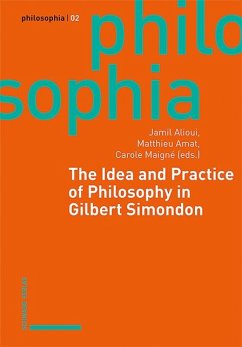
Gilbert Harman
Versandkostenfrei!
Versandfertig in 6-10 Tagen
39,99 €
inkl. MwSt.

PAYBACK Punkte
20 °P sammeln!
Please note that the content of this book primarily consists of articles available from Wikipedia or other free sources online. Gilbert Harman (born 1938) is a contemporary American philosopher, teaching at Princeton University, who has published widely on ethics, epistemology, metaphysics and the philosophies of language and mind. He was educated at Swarthmore College and Harvard University, where he earned his Ph.D. in Philosophy. He currently holds the James S. McDonnell Distinguished University Professorship in Philosophy. His daughter, Elizabeth Harman, is also a philosopher and a member ...
Please note that the content of this book primarily consists of articles available from Wikipedia or other free sources online. Gilbert Harman (born 1938) is a contemporary American philosopher, teaching at Princeton University, who has published widely on ethics, epistemology, metaphysics and the philosophies of language and mind. He was educated at Swarthmore College and Harvard University, where he earned his Ph.D. in Philosophy. He currently holds the James S. McDonnell Distinguished University Professorship in Philosophy. His daughter, Elizabeth Harman, is also a philosopher and a member of the philosophy department and the center for human values at Princeton University. Harman shares the belief of his Ph.D. advisor Willard Van Orman Quine that philosophy and science are continuous, as well as his skepticism about conceptual analysis. As a moral philosopher, he is best-known for his explanatory argument for anti-realism and for his defense of a form of ethical relativism, most recently and comprehensively in Moral Relativism and Moral Objectivity (Oxford: Blackwell, 1996), in which he debates the issue with Judith Jarvis Thomson.












